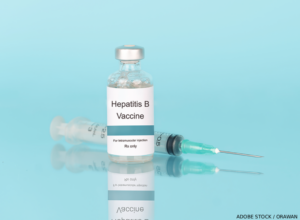 CHICAGO—In a particularly fraught landscape of evolving vaccination recommendations at the federal level that often counter state and local health department recommendations, clarifying the need for vaccinations, particularly in subgroups of people for whom safety and efficacy are of some concern given their medical condition, is critical.
CHICAGO—In a particularly fraught landscape of evolving vaccination recommendations at the federal level that often counter state and local health department recommendations, clarifying the need for vaccinations, particularly in subgroups of people for whom safety and efficacy are of some concern given their medical condition, is critical.
What came out loud and clear in the ACR Convergence 2025 session, Strength in Numbers: Using New Vaccines and Data to Protect the Immunocompromised, is that immunocompromised patients, such as those with autoimmune disorders, should be vaccinated against several diseases. “Vaccinate, vaccinate and vaccinate your patients,” emphasized Jin Kyun Park, MD, PhD, professor of medicine and chief of the Division of Rheumatology in the Department of Internal Medicine, Seoul National University Hospital and Seoul National University College of Medicine.
Patients’ families and those close to them should also be vaccinated. Dr. Park urged physicians to not only educate patients on the safety and efficacy of the vaccinations they should receive, but also ensure their patients actually get vaccinated. As of now, he said, rheumatologists are doing a poor job of this, noting that in patients with rheumatoid arthritis, lupus and sclerotic arthritis, only 5% are currently being vaccinated against zoster. “We’re not doing a great job,” he said.1
Why to Vaccinate by Far Outweighs the Why Not
Olivia Kates, MD, MA, assistant professor of medicine in the Division of Infectious Diseases at Johns Hopkins University, Baltimore, laid out why it is important to vaccinate immunocompromised patients. She said the goal is to lower the incidence of infectious diseases, morbidity, mortality and excess cost associated with adverse events. In other words, the goal of vaccination is to increase the safety of patients and ensure the treatments for their autoimmune diseases are successful.
“You [referring to the audience members] are trusted, longitudinal providers who are often overseeing the most important health issue in patients’ lives, managing their immunosuppressive medications and trying to protect them from both their disease and the complications of its treatment,” Dr. Kates said. “By presenting vaccination as a part of the rheumatologic disease treatment plan, you have a great opportunity to make treatment safer and more successful for your patients.”
With few exceptions, most patients with immunocompromised diseases, such as rheumatoid arthritis (RA), should be vaccinated for diseases like the seasonal influenza and COVID-19, Dr. Kates said. One important exception, she emphasized, is that seriously immunocompromised patients should not get live vaccines (i.e., measles/mumps/rubella vaccine, varicella vaccine, intranasal influenza vaccine, oral rotavirus vaccine, oral typhoid vaccine and yellow fever vaccine), although mildly immunocompromised patients can receive them.



